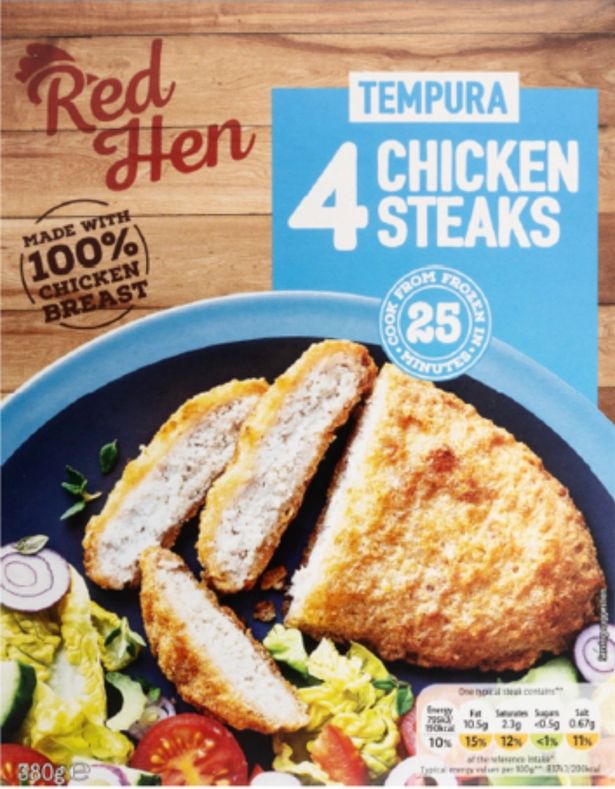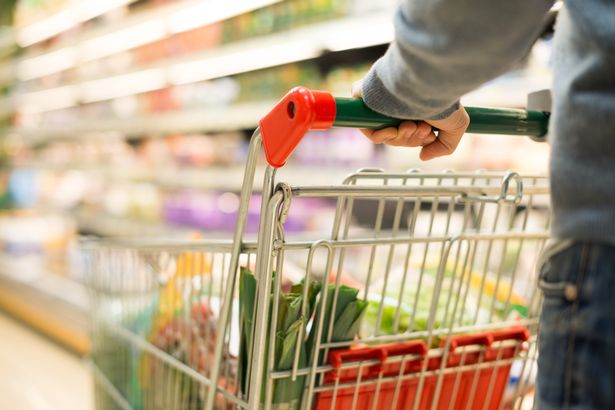Lidl has been forced to recall one of its chicken products due to a potentially dangerous “health risk” to some customers. The packaging does not display a key ingredient
16:45, 02 Aug 2025

A major budget supermarket has recalled a popular chicken product over health concerns.
Lidl announced the recall of its ‘Red Hen 4 Tempura Chicken Steaks’ on August 1 due to the product being a “health risk for anyone with an allergy or intolerance to milk or milk constituents”.
The recall, issued via the UK Food Standards Agency (FSA), said the product does not emphasise that it contains milk on the label. The 380g packs that have been recalled include “all stock” with the best before dates December 11, December 16 and December 22 all in 2026.
Products with the best before date January 16, 2027, have also been recalled over fears of a health risk. It comes as people are being warned to keep an eye on signs and symptoms that could point to a disease which causes weakness that gets progressively worse.
READ MORE: Doctor’s warning to people who drink even a ‘single cup of tea’READ MORE: ‘I lost 10st in a year without jabs, surgery or going to the gym’

“This product contains milk making it a possible health risk for anyone with an allergy or intolerance to milk or milk constituents,” an update on the FSA website said. It added: “Lidl is recalling the above product from customers and has been advised to contact the relevant allergy support organisations, which will tell their members about the recall.”
Customers who bought the product are advised to return it to the store for a full refund. Those who bought the product and could be affected are urged not to eat it.
It comes after the FSA urged people to take steps to avoid infection after infections from bacteria that cause stomach issues increased by around a quarter last year, according to new figures. Data from the UK Health Security Agency (UKHSA) shows there were 2,544 cases of infection with shiga toxin-producing E.coli (Stec) in 2024, a 26 percent rise on 2023.

While health chiefs said the rise was partly down to one foodborne outbreak, they also warned cases have gradually been increasing since 2022 and urged people to take steps to prevent food poisoning.
E.coli is a diverse group of bacteria and is normally harmless, living in the intestines of humans and animals. However, some strains, such as Stec, produce toxins that can make people very ill, leading to diarrhoea, stomach cramps and fever.
Stec is often transmitted by eating contaminated food but can also be spread by close contact with an infected person, as well as direct contact with an infected animal or where it lives. Symptoms can last up to two weeks in uncomplicated cases, although some patients, mainly children, may develop haemolytic uraemic syndrome (HUS), which is a serious life-threatening condition resulting in kidney failure.
Publication of the data follows a Stec outbreak last summer which was linked to contaminated salad leaves. It led to 293 cases, with 126 people needing hospital treatment, 11 developing HUS and two dying. As a result, a number of food manufacturers recalled sandwiches, wraps and salads sold by major retailers.
Natasha Smith, director of food policy at the Food Standards Agency, urged people to take steps to avoid infection. “When preparing food at home, people can reduce their risk of food poisoning by following good hygiene practices and by following advice on the 4Cs of food hygiene: chilling, cleaning, cooking, and avoiding cross-contamination,” she said.









